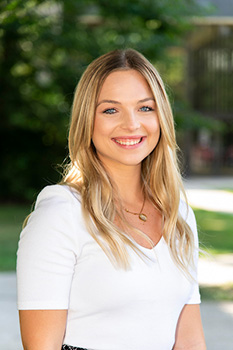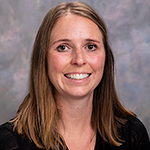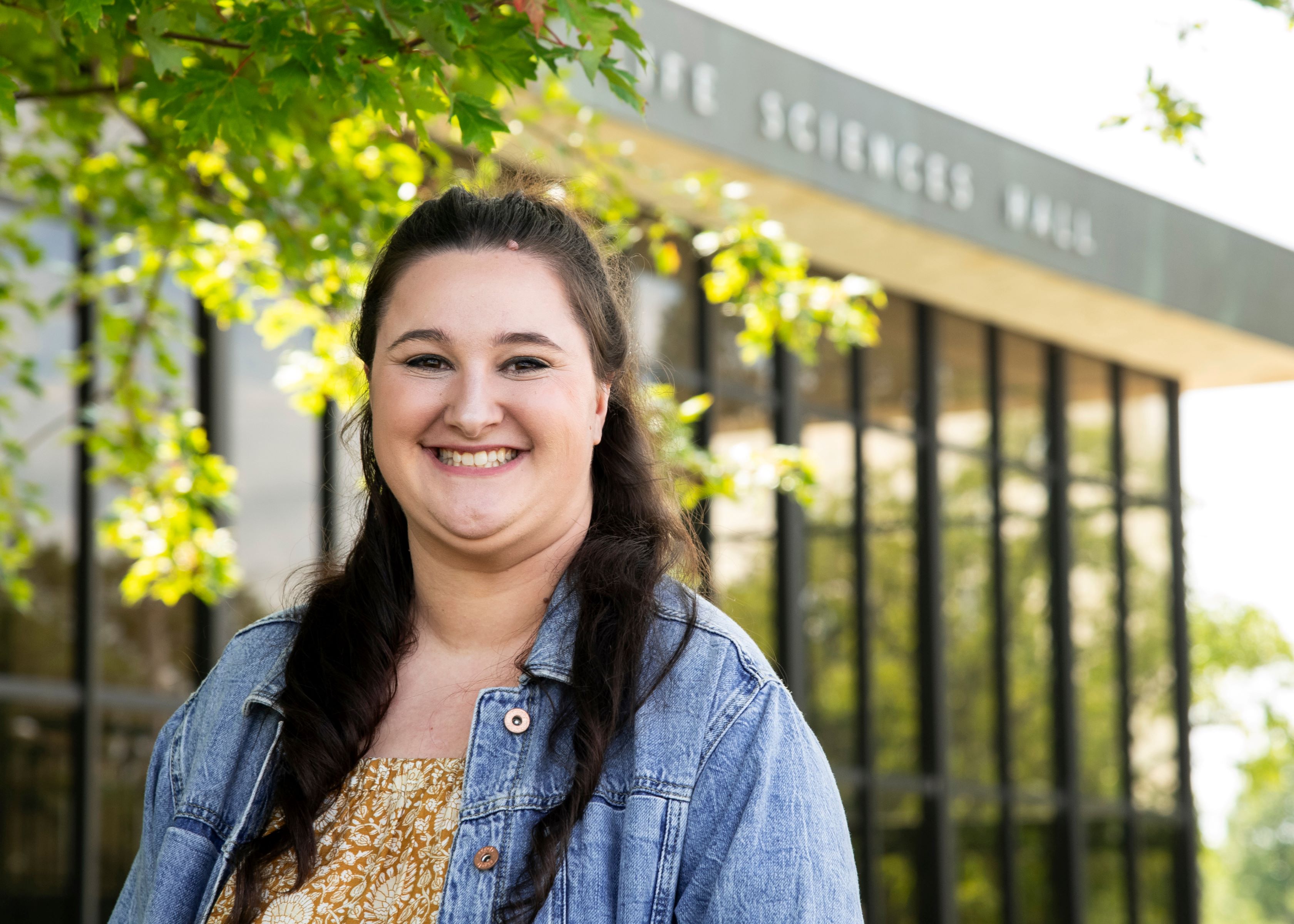Department of Psychology
WIU Home > CAS > Psychology

Specialist in School Psychology
About
Mission
The Western Illinois University School Psychology Program follows what Fagan and Wise (2007) call the pragmatic model of training. This model has elements of the scientist-practitioner model and the professional model, but emphasizes the importance for students to meet national and state credentialing requirements.
In order to meet these requirements, students in the Program require a strong knowledge base in psychology and in education. Equally important, school psychologists must operate legally and ethically within the settings in which they work. They must also have effective communication, collaboration, and consultation skills in order to share effectively the knowledge they have with consumers of their services. Our program is accredited by the National Association of School Psychologists (NASP) with full accreditation through February, 2030. More information on our program outcomes can be found on the NASP Graduate Database: Program Annual Report and Student Outcomes Data
Students need an understanding and appreciation of diverse populations. Each of these pieces of professional preparation is a critical component of overall professional development. In the spirit of the pragmatic model of training, the Program has adopted the 10 domains of school psychology training and practice articulated by the National Association of School Psychologists (NASP).
Goals
A primary goal of the school psychology program here at WIU is to train school psychologist practitioners and professionals who work to enhance the learning and development of all students and to assist those who are at-risk of academic or behavioral failure. Our training goal is to develop knowledge and skills in facilitating the efforts of pre-referral interventions (both academic and behavioral), providing counseling services, conducting comprehensive psycho-educational assessments, crisis planning and prevention efforts, and working to improve school climate for safe and supportive schools.
School psychologists are in the unique role as the data-driven leaders for the provision of academic and mental or behavioral health services. Therefore, a particular emphasis is given to training the development of consultation and counseling skills in order to effectively support students and work effectively with the entire school system.
Objectives
Our objectives are to:
- Train school psychologists who understand the school as a system;
- Train school psychologists who promote cultural competence in their service delivery
- Train school psychologists who advocate for safe schools to promote the well-being for all children.
Practicum & Intership Sites
Practicum Sites
First and second year students are assigned to schools in the Western Illinois area schools or special education cooperatives. Students do not have to find their own practicum placements. Student placements will be changed from the first to second year in order to maximize the experiences and training across different sites. Student's commuting and schedule of classes will be considered when making placements.
Although students complete the majority of their practicum work in public school settings, we do have an on-campus Psychoeducational Clinic. The Clinic accepts referrals from parents in cases where a second opinion is warranted. Students work under faculty supervision on these cases.
Internship Sites
Students in the School Psychology Program complete a year-long internship during their final year in the program. Internship placements include a variety of school districts across Illinois, Missouri, Iowa, and on occasion other states as well, including Alaska. Please see below for a list of recent internship locations for school psychology graduates.
Examples of WIU School Psychology Students' Internship Sites
- Batavia Publi School District 101
- Black hawk Area Special Education District
- Decatur Public Schools 61
- DeKalb CUSD #428
- East Aurora District 131
- Elmhurst Community Unit School District 205
- Great Prairie Area Education Agency
- Henry Stark Counties Special Education District 801
- Knox-Warren Special Education District
- Leyden Area Special Education Cooperative
- Macomb School District
- Mississippi Bend Area Education Association
- Mohmet-Seymour Community School District 3
- Northwest Special Education Cooperative
- Ogle County Educational Cooperative
- Oswego Community Unit School District 308
- Ottawa Elementary School District 141
- Peoria District 150
- Quincy Public Schools
- Rock-Island Milan School District 41
- Rockford Public Schools District 205
- Sangamon Area Special Education District
- Special Education Association of Peoria County
- Special Education District of Adams County
- Special Education District of St. Louis County
- Springfield School District 186
- Tazewell Mason Counties Special Education Association
- TriCounty Special Education Association
For more information about licensing across states: http://wiu.edu/provost/docs/ProfessionalLicensureDisclosureReport.pdf . Please check with SSP program faculty about current licensing requirements in Illinois.
Testimonials
Alumni
"I really enjoyed the close knit relationships and professional connections that I was able to build during my time in the WIU School Psychology program. The small cohort sizes and low student to faculty ratio allowed me to get to know my peers and professors, while maintaining the level of support I needed to be successful and grow in my skills. Having the opportunity to experience rural schools and the broad variety of tasks a school psychologist does depending on the area/schools they serve was a major benefit to the program."
~ Emily Groom, MS, 2020
"My experiences in School Psychology Program at WIU were outstanding. The professors provided support as they helped me develop the skill set necessary to pursue and realize my dream to become a school psychologist. WIU's comprehensive instruction and real-world approach resulted in a smooth transition to my internship and to my career. The knowledge and understanding I gained in the WIU program have made me a confident school psychologist."
~ Ryanne Nason, MS, 2016
"During my practicums at WIU, I was able to work with students, parents, and staff members in rural areas. In contrast, I completed my internship in a more urban city. The experiences that a school psychologist gains in the two settings can be very different, yet equally important. I believe my involvement in both locales gave me a broader, richer knowledge of what this career can entail."
~ Keenan Gil-McQuillan, MS, 2015
"At WIU, I learned what the field of school psychology actually was, its history, ethics and professional standards, and developed entry-level professional skills and the professional dispositions necessary for effective practice. I also was exposed to my first professional role models, one of whom, Dr. Tom Fagan has served as a lifelong mentor and adviser."
~ Dr. Mark Swerdlik, MS, 1972
Current Students
"Western Illinois University's Specialist in School Psychology program has allowed me to gain the experience necessary to prepare me for my future role as a school psychologist. The 1st and 2nd year practicum opportunities have been a highlight of my education, and they have served as an opportunity to apply the knowledge and discussions from class to real-world situations. The program fosters your professional development, and ensures that you will be successful when you start your internship in the 3rd year. "
~ Ben Lilly, MS, 2023
"I am excited to be a part of the school psychology program at Western Illinois University. I am a first year student in the program and I have gained so much knowledge already. I really enjoy the real world experience the program offers by being in a school setting every week. Being in this program has been a great experience so far, and I’m excited to continue my education at WIU!"
~ Madeline Groenewold, MS, 2024
Lori Lynne Myers Award

2022 recipient, Autumn Buckley ('21)
The Lori Lynne Myers Award is a monetary award given annually to a second year student in the School Psychology Program. The award is named after Lori Lynne Myers, a 1998 graduate of the Program, who died accidentally soon after graduating. Her family, peers, and friends established a fund in Lori’s memory. It was decided that recipients of the award should be those who best exemplify the things that Lori stood for: a strong commitment to the field of school psychology; the ability to balance academic achievement with other aspects of life; a sense of humor; and a sense of caring for one’s classmates. Lori was a special person and we are honored to be able to remember her in this way.
Each year late in the spring semester, first year students are informed of the Lori Myers Award and are encouraged to think about someone in their class who demonstrates the characteristics possessed by Lori. During spring semester individual disposition conferences, first year students are asked to nominate one or more classmates for the award. All first year students are also encouraged to apply for the award during the summer prior to their second year of the Program. Applications consist of a cover letter indicating why the individual feels that s/he qualifies for the award and a brief (one to two page) resume. A committee made up of school psychology faculty, the Psychology Department chair, and one of Lori’s classmates examine the applications and the peer nominations and make a determination.
School Psychology Contacts and Faculty

Leigh Ann Fisler, Associate Professor & SSP Graduate Program Coordinator
Office: Waggoner Hall 135
Phone:
(309) 298-1923
Email:
LA-Fisler@wiu.edu

Tracy Cruise, Professor & Psychology Clinic Director
Office: Waggoner Hall 132
Phone:
(309) 298-1745
Email:
TK-Cruise@wiu.edu
DEI Statement
The School Psychology program at WIU aims to be a welcoming and affirming place where all students, staff and faculty-Asian, Asian-American, and Pacific Islander students, Black students, Indigenous students, students of color, LGBTQI*A+ students, international students, students with disabilities, students with intersecting identities, and other students representing diverse groups—feel supported to attain an excellent education. The mission of our program is to train the next generation of school psychologists who strive to protect the rights and opportunities for all. This work begins at home, by learning how the way social categories interact to create systems of privilege, power, discrimination, and oppression.
We are proactively working to increase the discussion and find action-oriented steps we can take in our training and profession to improve equity in school psychological services. We are committed to ensure the safety, security, and school environment for students from all backgrounds to thrive. We are dedicated to increase the efforts in coursework that recognize personal biases and places value in cultural diversity. This continued work will enable us to stay current in the dynamic political and social environments that affect the cultural norms of our students, faculty, and community members.
For more resources, programs, centers and support at WIU please visit the Office of Justice, Inclusion, Diversity and Equity.
We endorse the School Psychology Unified Antiracism Statement and Call to Action.
Developed in collaboration with school psychology educators, practitioners, and graduate students, NASP’s new Equity, Diversity, and Inclusion (EDI) podcast series explores a broad range of professional topics in school psychology from an EDI lens. Visit the EDI Podcast Series website.
View the NASP External Social Justice Resources featuring social justice teaching guides, parent resources, children’s books, and discussion guides


Connect with WIU: